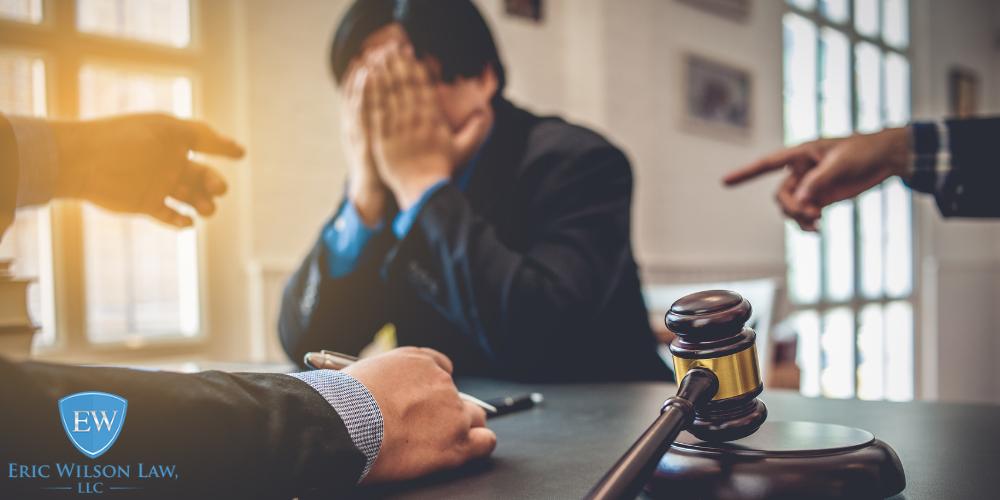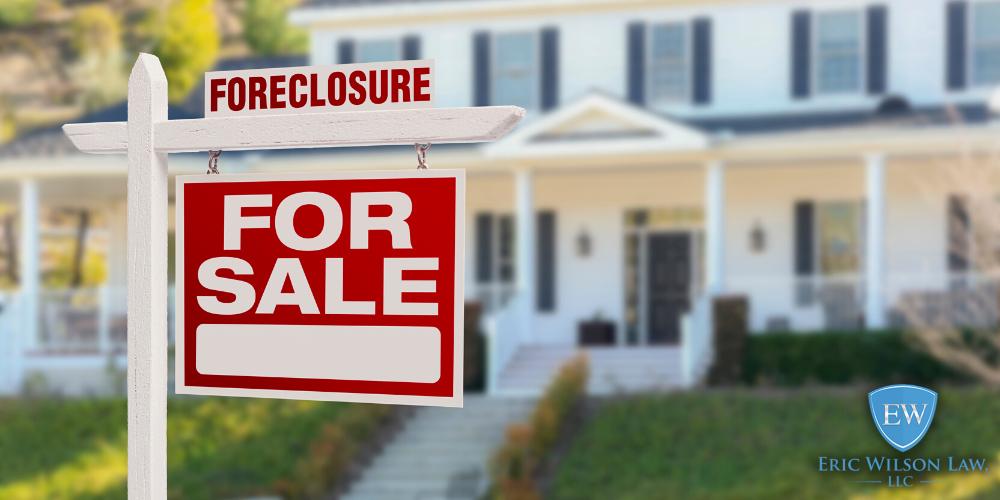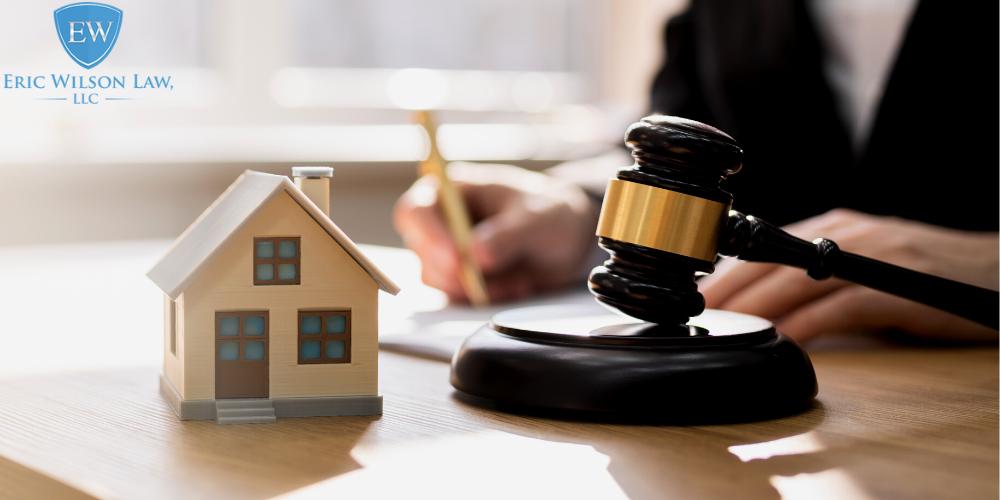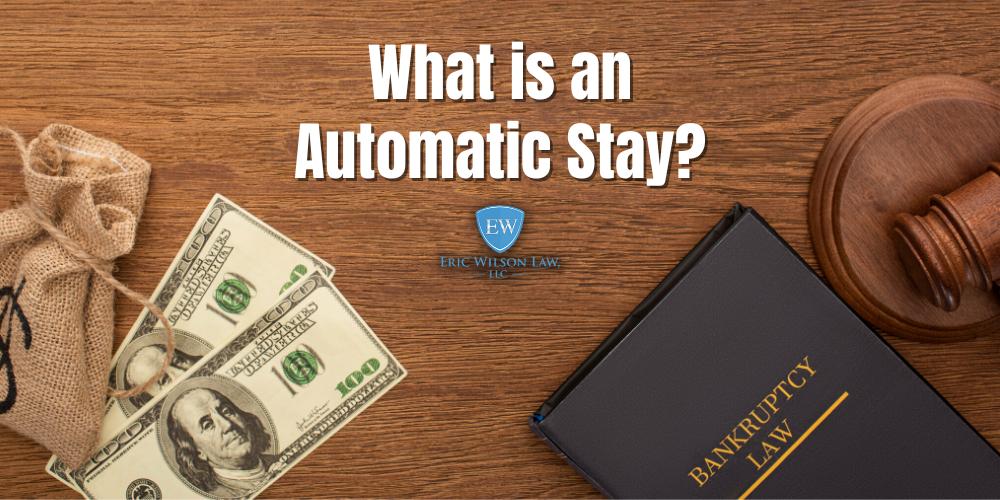When your debts are mounting, filing for bankruptcy can provide some relief from creditors. One of the most important protections provided under U.S. bankruptcy law is an automatic stay. While an automatic stay limits what creditors can do, including halting foreclosure and preventing utilities from shutting off services for a time, there are limits to the protections provided by an automatic stay.
If you’re considering filing for bankruptcy, an automatic stay can help you keep most creditors and lawsuits at a halt. Eric Wilson and his team of bankruptcy lawyers have years of experience and knowledge of Alabama bankruptcy laws. He can help you file bankruptcy and receive relief from credit card debt, medical debt, and so much more. Call our office today at 205-349-1280 for a free consultation.
What is an Automatic Stay?
An automatic stay is a provision in the United States bankruptcy law that temporarily prevents creditors, collection agencies, government entities, and others from pursuing debtors for money that they owe.
The automatic stay is one of the most important protections and powerful tools available to a debtor in bankruptcy. It is provided for in section 362 of the Bankruptcy Code. Triggered immediately on filing of the bankruptcy petition, it automatically stops substantially all acts and proceedings against the debtor and the debtor’s property.

How Does an Automatic Stay Work?
An automatic stay goes into effect when a debtor files for bankruptcy. The automatic stay applies to individuals, businesses, and to all of the chapters of the Bankruptcy Code. However, the automatic stay does not apply to non-debtor entities, such as corporate affiliates, corporate officers, co-defendants, or guarantors.
Automatic stays are not one-size-fits-all debt relief. They have their limitations, but an automatic stay can provide the break that allows debtors to work out their finances before creditors can attempt to collect on a debt. An automatic stay puts all creditors on a level playing field. Once an automatic stay is in place, no one creditor can attempt to collect on a debt to the detriment of other creditors.
Be sure to list all creditors in your bankruptcy filing so they are informed that the process (and automatic stay) is in effect. Also keep a copy of the bankruptcy filing case number handy should some creditors fail to receive notice of your filing and continue trying to contact you.
An automatic stay is not permanent, but it protects debtors from further court action, foreclosure, liens against property, and repossession attempts while the bankruptcy filing is played out in court.
What an Automatic Stay Can Prevent
An automatic stay is a tool with benefits to debtors who file Chapter 7 and Chapter 13 Bankruptcy. However, it is not a “fix all” solution. Here are some of the temporary areas that it can help:
Foreclosure
Foreclosure occurs when a homeowner is no longer able to make mortgage payments as required which allows the lender to seize the property, removing the homeowner and selling the home. An automatic stay will keep foreclosure proceedings on hold for as long as your bankruptcy case is open.

Eviction
Eviction is the removal of a tenant from a rental property by the landlord. An automatic stay can be helpful for tenants but the relief is not as open-ended as it is with foreclosure. The relief from eviction proceedings can last for a brief period of time but the landlord can request the stay be lifted while the bankruptcy filing is still active.
Utility Disconnections
An automatic stay won’t erase what you owe in unpaid utility bills, but it can keep your utilities from getting shut off for at least 20 days.
Collection of Overpaid Public Benefits
If you were overpaid for any benefits, such as Medicare or unemployment, an automatic stay prevents creditors from garnishing the overpayment. It does not stop the agency providing the benefits from stopping payment to you.
Multiple Wage Garnishments
An automatic stay can provide adequate protection from wage garnishment. If the debt that prompted your wage-garnishment is wiped out in bankruptcy, a bankruptcy filing could stop the wage garnishment permanently.
Student Loans
Debtors that file for a Chapter 7 bankruptcy are instantly protected by the automatic stay. This protection applies to student loan lenders, and as a result, your loans will be put into automatic forbearance once your bankruptcy case is filed. Your interest continues to accrue during the time your bankruptcy case is open, and you will be responsible for those amounts. However, you can take a break from paying your regular loan payments while your Chapter 7 bankruptcy is pending. If you plan to continue making payments, it is important to communicate with your lender once you file your case and keep records of any payments you make while your bankruptcy case is open.
If you file a Chapter 13 bankruptcy, you have two different ways that your student loans may be dealt with.
- First, your student loans can be placed “in the plan” and a portion of your monthly payment will go toward the loan balance(s). However, this monthly amount is likely to be smaller than your regular payments and this approach will not stop you from accruing interest on the loans. The automatic stay applies for the life of your Chapter 13 plan and the student loan lenders must accept the smaller payment amount while you are in Chapter 13 bankruptcy, which is normally three to five years.
- The second way to handle student loans in Chapter 13 bankruptcy is to pay the loans “outside of the plan.” The benefit of this approach is that you can continue to make regular payments on the loans and keep interest from piling up during the years you are in a Chapter 13 repayment plan. This option however, is often limited as a practical matter because many do not have enough money to make their student loan payments while also making Chapter 13 bankruptcy payments.
What an Automatic Stay Can’t Prevent
An automatic stay also has limitations as well as benefits. While it helps in some aspects, it doesn’t provide protection from all debts or legal actions. The following debts and legal actions are not protected from an automatic stay.
Criminal Proceedings
If you were charged with a crime and a penalty is part of the charge, an automatic stay will not help you avoid paying the penalty. The Supreme Court ruled that bankruptcy laws should not be used to shield debtors from criminal proceedings.
Support Actions
The automatic stay will not stop child support or domestic support obligations from accruing or delay family law proceedings. Child support debt is among the first debts to be paid. It would not be wise to think about stopping child support payments when filing bankruptcy.
Pension Loans
Pension loans are loans given to retirees or pensioners where their future pension payments are used as collateral. Though an automatic stay can protect against wage garnishment, employers can continue to deduct pension loan payments through the garnishment. If you have job-related pensions and IRAs, money can be withheld from your income to pay loans.
Multiple Filings
Multiple bankruptcy filings in a year’s time may seem like a manipulation of the bankruptcy system. You’ll only receive relief from the automatic stay if you prove your repeat bankruptcy filing is legitimate. If you had a bankruptcy filing in the previous year, relief from the stay will automatically terminate after thirty days unless you, the U.S. Trustee, or a creditor asks for the stay to continue.
There are more debts and actions that the automatic stay does not cover, including tax audits and debts incurred after your case was filed. However, the automatic stay applies to most creditor actions in most Chapter 7 bankruptcy cases.
How Long Does an Automatic Stay Last?
The automatic stay remains in effect until your bankruptcy case is closed. But it isn’t always that simple.
For Chapter 7 Bankruptcy, it’s often the case that an automatic stay will last the 3-5 months the court case is open. For Chapter 13 Bankruptcy, cases could take anywhere from 3-5 years. Multiple filings can also affect the length of an automatic stay. More than one bankruptcy filing in a calendar year could limit the stay to 30 days. A lengthy history of declaring bankruptcy could completely eliminate the opportunity for an automatic stay relief motion.
What is a Motion for Relief From an Automatic Stay?
A motion for relief from the automatic stay is something a creditor requests from the bankruptcy court. They essentially ask the court for permission to continue certain collection actions against you. Creditors can file a motion for relief from the stay (and therefore resume collection efforts) before a bankruptcy discharge if they can prove that:
- The stay hurts their business, or
- The assets will no longer be worth enough to cover costs after the bankruptcy case is complete.
If a bankruptcy judge agrees, they may grant their motion for relief from the stay. It’s important to remember that it’s a creditor-by-creditor decision, and not all courts approve lifting an automatic stay. When relief from the stay is granted, it does not remove the property from the bankruptcy petition or grant the creditor ownership of the property. It only removes the automatic stay and restores the parties to their state law rights. Creditors can then enforce those rights to the extent that the relief from the stay order permits.
Some instances that could lead to an automatic stay being lifted include a landlord-tenant dispute, a foreclosure action, or a lawsuit in another court.
Can You Sue if a Creditor Violates an Automatic Stay?
Yes, a debtor can sue a creditor if they violate the automatic stay by continuing collection efforts. The violating creditor could face penalties from the bankruptcy court, provided the debtor files the proper paperwork to sue the creditor.
Even a minor violation of an automatic stay by a creditor can have serious consequences. For example, if a creditor sends collection letters to the debtor in violation of the stay, the court may order the creditor to pay damages, fines, attorney fees, and even punitive damages.
Creditors have incentives to honor the automatic stay, but they must have received notice of the bankruptcy filing to stop collection efforts. The bankruptcy court mails notice of the filing to the addresses listed on your bankruptcy petition. If you leave a creditor out, the courts could too.
It’s wise to keep a copy of the bankruptcy paperwork, complete with case number for filing, should an uninformed creditor continue to call.
Do I Need a Bankruptcy Lawyer?
Representing yourself in court is an option. Whether it’s the right option for you depends on your situation. Keep in mind that if you are harassed by creditors and want to take action to solve your financial problems, you should consult an experienced lawyer to help with your bankruptcy proceeding. Filing for bankruptcy can stay on your credit report for seven or ten years, depending on the type of bankruptcy. Therefore, it’s important that you consider hiring a bankruptcy lawyer like the attorneys at Eric Wilson Law. They can help you figure out how best to resolve your financial difficulties and what kind of bankruptcy action is best for you.

Call a Tuscaloosa Bankruptcy Lawyer at Eric Wilson Law Today
Bankruptcy law can be very complicated and technical. You are much more likely to get the best result from bankruptcy if you have an experienced bankruptcy lawyer on your side giving you expert advice. The attorneys at Eric Wilson Law of Tuscaloosa, Alabama want to answer your questions and listen to your concerns. Call our office today at 205-349-1280 to schedule a free consultation.


